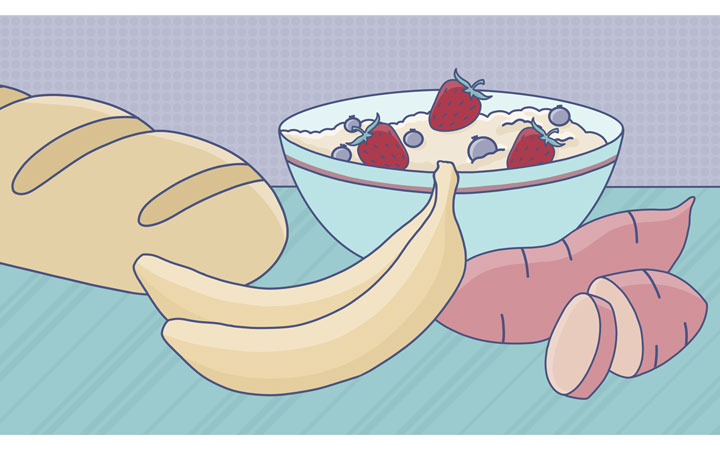There are so many things to consider when it comes to getting good sleep, from sticking to a regular bedtime and wakeup time to creating a relaxing sleep environment with a comfortable mattress. Another major factor in successful sleep? Food intake and meal times.
Want to learn more about diets or how nutritional remedies can boost your sleep health? Keep reading to understand the ways in which food can promote or interfere with sleep, the relationship between sleep and weight loss, and possible ways to enhance sleep through diet. Additionally, we’ve included further sources for reading and nutrition and sleep resources below!
Nutrition’s Role in Promoting Sleep
Balanced nutrition is incredibly important, affecting everything from muscle growth to brain health. However, there’s still much to learn when it comes to the exact relationship between nutrition and sleep. Research suggests that a number of foods help shorten sleep onset time (that’s the amount of time it takes to fall asleep), but for the most part, hard evidence is limited.
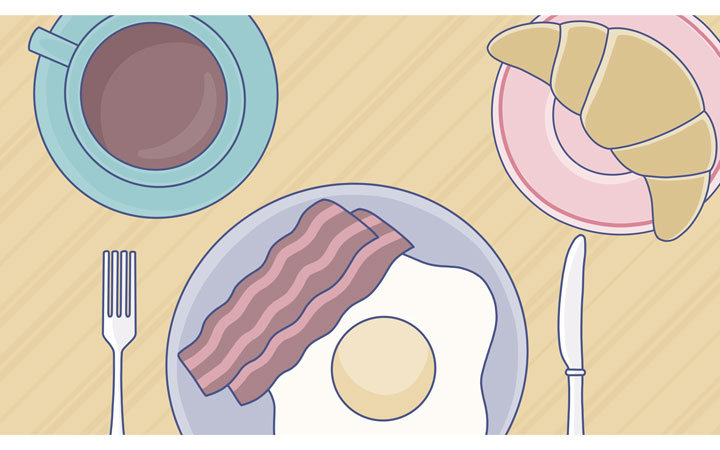
Foods and Drinks That Can Help You Sleep
Some research suggests that certain foods might help you feel sleepy, fall asleep more quickly, and sleep more deeply. But give your body some time to digest any pre-bedtime snacks before turning in for the night — around 30 minutes should do the trick.
Here’s what we do and don’t know about popular sleep-promoting foods:
Chamomile Tea
Herbal teas like chamomile are a popular pre-bed drink, and studies suggest that chamomile has mild sedative properties. However, as one literature review found, there’s little hard data on chamomile’s effectiveness, and how it works isn’t fully understood either. According to a LiveScience article, the jury is out on whether or not chamomile specifically can affect sleep—but the act of sitting down with a soothing, non-caffeinated beverage may well promote relaxation and make falling asleep easier.
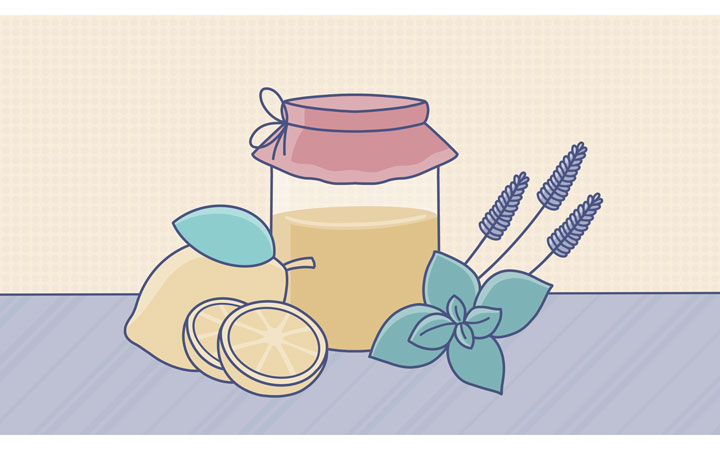 Tart Cherry Juice
Tart Cherry Juice
Tart cherry juice may enhance sleep quality, according to preliminary research. In a 2012 study published in the European Journal of Nutrition, researchers asked participants to consume either a placebo or some tart cherry juice concentrate every day for a week. The group who drank the cherry juice had “significantly elevated” melatonin levels, plus “significant increases in time in bed, total sleep time and sleep efficiency total.”
Almonds
Bananas
“Bananas are an excellent source of magnesium and potassium, which help to relax overstressed muscles,” Saundra Dalton-Smith, M.D. told Woman’s Day in 2016. “They also contain tryptophan, which convert to serotonin and melatonin, the brain’s key calming hormones.”
Orange Juice or Pineapple Juice
A 2013 study in the Journal of Pineal Research found that tropical fruit juices helped participants raise their “serum melatonin concentrations.”
Magnesium Supplements or Foods Containing a Lot of Magnesium
Magnesium is thought to help “relax” your nervous system, making it easier to fall asleep. Lentils, bananas, almonds, and pumpkin seeds are all rich in magnesium.
Jasmine Rice or Other High-Glycemic Foods
A very small 2007 study in the American Journal of Clinical Nutrition found that men who ate Jasmine rice (a high-glycemic index food) fell asleep twice as fast as those who ate Mahatma rice (a low-glycemic index food) with their evening mail.
More Research Is Needed
A paper published in the journal Advances in Nutrition in September 2016 reviewed a number of studies on sleep and diet. Researchers concluded that some foods seem promising for shortening sleep onset time, but stressed that more research is necessary.
“Some foods, such as milk products, fish, fruit, and vegetables, also show sleep-promoting effects, but studies have been too diverse, short, and small to lead to firm conclusions,” the authors wrote. “This review thus finds that some dietary patterns and foods show promise as sleep modulators, but more research is necessary to draw definitive conclusions.”
The study’s authors added: “It is unknown at this time if an overall diet approach, rather than inclusion or exclusion of specific foods, can improve sleep and, if it does, within what time frame benefits should be observed… It is comforting to note that the findings reported herein are in line with other dietary recommendations for health in the general population: increasing fruit and vegetable intakes, choosing whole grains (higher in fiber), and favoring vegetable oils (low in saturated fat).”
Foods and Drinks That Can Prevent High-Quality Sleep
The most obvious example of this is caffeine. The Mayo Clinic says that up to 400 milligrams of coffee per day is generally safe for most adults, which equates to roughly four cups of brewed coffee. However, some people are more susceptible to caffeine than others, meaning that drinking a certain amount of caffeine throughout the day or after a certain time in the afternoon can inhibit sleep.
Many of us may regret that last cup of coffee as we struggle to fall asleep. But a new study suggests high levels of coffee consumption may have negative impacts that last beyond a single night. The study may have found a connection between constant coffee drinking and sleep issues later in life. Researchers at Seoul University in South Korea discovered that elderly subjects with a lifetime of coffee use reported poorer sleep quality than those subjects who did not regularly drink coffee.
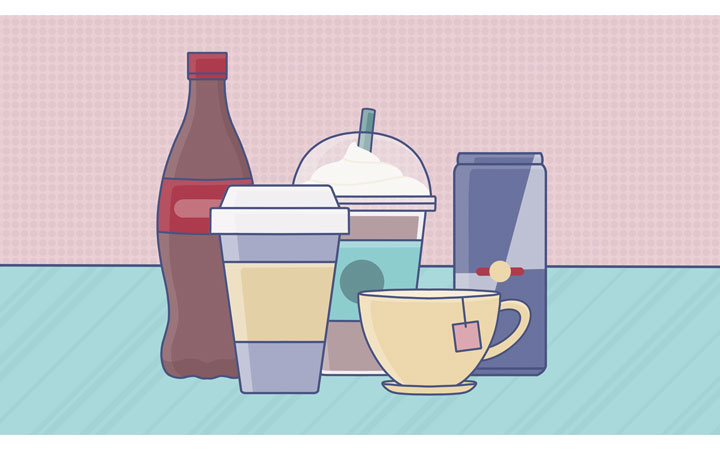
According to the study, which was published in the journal Sleep, the connection may have to do specifically with coffee’s effect on the pineal gland, an important regulator of sleep patterns.
When quantifying caffeine intake, it’s important to include not just coffee and tea but also sodas, energy drinks, and caffeine-containing foods like chocolate. Another surprising source of caffeine? Medications.
“Caffeine is a common ingredient in many prescriptions and over-the-counter headache drugs,” the Cleveland Clinic explains. “Because analgesics (pain relievers) work faster and more efficiently with caffeine, patients are able to take less medication.”
A few examples:
- One dose of Excedrin Migraine contains65 milligrams of caffeine
- One dose of Midol Menstrual Maximum Strength Caplets contains 60 milligrams of caffeine
- One dose of Aspirin-Free Excedrin Caplets contains 65 milligrams of caffeine
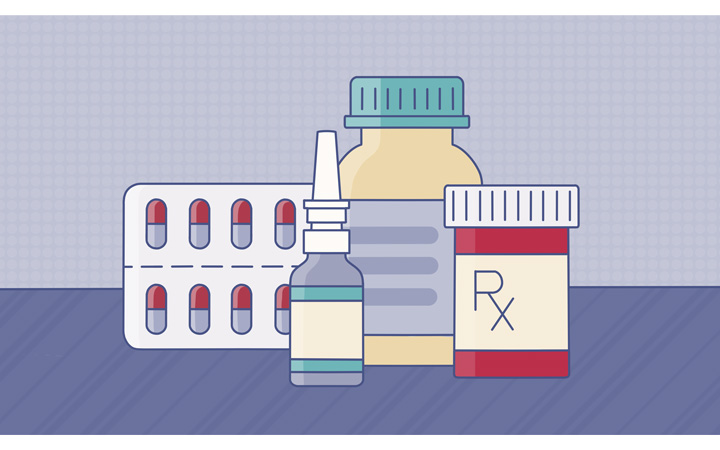 Foods That Can Trigger Acid Reflux
Foods That Can Trigger Acid Reflux
Acid reflux, also called gastroesophageal reflux (GER), occurs when stomach acid flows backward into the esophagus. “During an episode of acid reflux, you might feel a burning sensation in your chest (heartburn),” the Mayo Clinic says. “This can occur after eating a big meal or drinking coffee or alcohol.”
Experiencingheartburn at night can prevent sleep onset or cause nighttime wakeups. To avoid this, the Mayo Clinic says, stop eating at least two to three hours before bedtime.
Another solution is to avoid foods that trigger acid reflux: Common causes are spicy foods, extremely high-fat items, and alcohol. Acid reflux can also be treated with over-the-counter antacids.
Additional Food, Drinks, & Diets Resources
Meal Timing for Better Sleep
Most evidence on how to enhance sleep through diet is anecdotal and thus not totally backed by science. For example, some people swear by a cup of herbal tea to help them sleep at night – but it’s unclear what helps with sleep onset, the herbs themselves or the relaxing ritual of sitting and drinking something hot.
That said, there are a couple of ways to enhance sleep through diet — mostly related to meal timing and limiting things that can interfere with sleep.
Meal Timing and Sleep Onset
“Circadian rhythms, metabolism, and nutrition are intimately linked, although effects of meal timing on the human circadian system are poorly understood,” a study published in the journal Current Biology in June 2017 explained. Translation: Meal times affect sleep, but the details aren’t totally clear.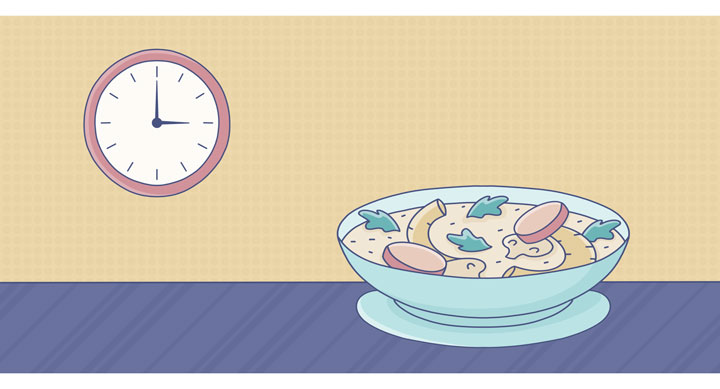 When to stop eating at night also depends on personal and professional schedules. Some people go to bed early and can stop eating at 6 p.m.; others are up until after midnight and would struggle with fasting for multiple hours before bed. LiveScience estimates that it takes the average person three hours to digest dinner and begin to feel hungry again, so a 2- or 3-hour buffer between dinner and bedtime seems reasonable.
When to stop eating at night also depends on personal and professional schedules. Some people go to bed early and can stop eating at 6 p.m.; others are up until after midnight and would struggle with fasting for multiple hours before bed. LiveScience estimates that it takes the average person three hours to digest dinner and begin to feel hungry again, so a 2- or 3-hour buffer between dinner and bedtime seems reasonable.
Before reaching for a late-night snack, MIT recommends using the HALT acronym to establish a true motivation: Hunger, Anxiety, Loneliness, or Tiredness.” Instead of eating for a non-hunger reason, the site suggests, drink a glass of water or take a break to do something relaxing.
Meal Timing and Sleep Onset for Children
A pediatrician will be able to weigh in on diet recommendations for individual children and advise on whether commonly-held beliefs—like the idea that fatty fish is better for kids than meat in terms of improving sleep and mental health—hold any weight.
The Riley Hospital for Children at Indiana University Health explains that some kids will need a bedtime snack. “A kid who goes to bed hungry is going to have a tough time getting to sleep,” Dr. Stephanie Jackson, M.D., a pediatric neurologist, explains on the hospital’s website. “If you’re serving adequate portions at meals and your child consistently says she’s hungry at bedtime, a small snack is reasonable.”
Jackson recommends bedtime snacks that are high in protein or fiber, like “nuts, peanut butter, Greek yogurt, hummus, eggs, beans, tofu, berries, and whole grains.” It’s important for children to avoid caffeine before bed, which means that chocolate-y snacks are not recommended.
Finally, some kids may find it soothing to drink a glass of warm milk before bed. This protein-heavy snack can help keep them full through the night.
Is It Smart to Eat Carbs Before Bed?
Some research suggests that a high-carb meal can shorten sleep onset times. And where the carb foods fall on the glycemic index matters, too. The Academy of Nutrition and Dietetics explains that the glycemic index (GI) “is a measure of how quickly a food causes our blood sugar levels to rise.” GI is measured on a scale of 0 to 100, and “foods with a high glycemic index, or GI, are quickly digested and absorbed, causing a rapid rise in blood sugar… Meanwhile, foods with a low GI are digested and absorbed at a slower rate, and subsequently, cause a slower rise in blood sugar levels.”
A small study published in The American Journal of Clinical Nutrition in 2007 examined the relationship between carbohydrate intake and sleep. Researchers studied a group of 12 adult men aged 18-35 who had no known sleep disorders and did not take any medications. Each subject underwent three different test nights, with at least one week between each test night. On one night, they received a high-GI meal of jasmine rice four hours before their bedtime. On another, they received a high-GI meal of jasmine rice one hour before bedtime. On the final night, they received a low-GI meal of Mahatma rice, which has less than half the GI of Jasmine rice, four hours before bedtime.
Researchers found that the subjects fell asleep more quickly when they ate the high-GI meal. Furthermore, the high-GI meal eaten four hours before bedtime was more effective in shortening sleep onset than the high-GI meal eaten one hour before bedtime.
So, it’s possible that a high-GI meal can make it easier to fall asleep. However, because of the way high-GI foods affect blood sugar, experts typically recommend limiting the intake of high-GI foods. Plus, high-GI foods are often processed items like white bread or white rice, which are less nutritious than whole-grain options. Because of the effects on blood sugar, high-GI foods are often not suitable for people who have diabetes or other chronic health conditions. For instance, cancer patients have certain eating and digestion challenges of their own.
“Eating healthier carbohydrates can help prevent a host of chronic conditions, especially diabetes, but it can also ward off heart disease and various cancers,” Harvard Health says. The occasional high-GI meal that fosters good sleep is probably nothing much to be concerned about, but relying on a carb-rich meal to fall asleep quickly every night is likely not a reasonable long-term solution to sleep onset problems.
Sleep Deprivation & Nutrition
Both sleep deprivation and nutrient deficiencies are common among American adults. New research suggests these two phenomena might be related.
The study, which was recently presented at the American Society for Nutrition’s Annual Meeting, Nutrition 2019, found that people who obtained fewer than seven hours of sleep per night, on average, consumed lower amounts of certain vitamins and minerals compared to people who slept more than seven hours per night.
Additionally, the study suggests that certain nutrient deficiencies may be associated with poor sleep quality, trouble falling asleep, and even sleep disorders.
Dr. Chioma Ikonte, lead author of the study and Director of Nutrition Sciences at Pharmavite LLC—a company that sells dietary supplements and funded this study—told Mattress Clarity via email:
“This research was inspired by the fact that most Americans fall short of the Center for Disease Control (CDC) recommended sleep hours of 7 to 9 hours for adults 18 to 64 years. A number of studies have also reported on the inadequate intakes of several micronutrients across the American population. We wanted to understand if there was a relationship between nutrient intakes and sleep outcomes.
We performed a cross-sectional analysis of the NHANES database from 2005 to 2016, which assessed the intake of micro and macronutrients from food and food plus supplements among individuals 19+ years who self-reported various sleep issues. The sample size for this study was more than 26,000 Americans.”
This analysis found that people who obtained, on average, less than seven hours of sleep per night consumed lower amounts of vitamins A, B1, and D and the minerals calcium, magnesium, niacin, phosphorus, and zinc. The new study adds to a growing body of research suggesting that sleep quality and nutrition may be closely linked.
Sleep Deprivation Can Contribute to Dietary Choices
An October 2019 study found that sleep deprivation affects the type of foods people choose to eat. Researchers followed a group of 29 men and women over two different nights four weeks apart: During one night, participants got a normal night’s sleep. On the other night, they were only permitted to sleep for four hours total. The day after, participants were served three meals, but also offered a buffet of different snack options including less-nutritious foods.
After being sleep deprived, researcher Thorsten Kahnt, an assistant professor of neurology at Northwestern University Feinberg School of Medicine, said in an article: “We found participants changed their food choices. After being sleep deprived, they ate food with higher energy density (more calories per gram) like doughnuts, chocolate chip cookies, and potato chips.”
Kahnt suggests that this is because “sleep deprivation makes our brain more susceptible to enticing food smells.” He joked: “So maybe it might be worth taking a detour to avoid your local doughnut shop next time you catch a 6 a.m. flight.”
Sleep Deprivation Can Influence Sugar Cravings
Those looking to cut out sugar, getting more sleep could help. A study published in the American Journal of Clinical Nutrition found a link between getting more sleep and consuming less sugar.
A group of 42 people aged 18 to 64 who slept between five and seven hours each night took part in the study. The “sleep extension” group were given a 45-minute consultation about how to get a better night’s’ sleep, whereas the “control” group did not. All the participants wore sleep trackers and kept food diaries for the duration of the four-week trial.
The sleep consultations, which were led by a sleep psychologist and involved setting bedtimes and sleep-promoting behavior like avoiding electronics before bed, seemed to work for the “sleep extension” group: 86 percent of them increased the average time they spent in bed, and 50 percent increased their average time asleep by between 52 to 88 minutes.
Researchers also noticed an interesting side effect: Participants who increased their sleep also reported eating less sugar. They wrote in the study that “sleep extension led to reduced intake of free sugars” by an average of 10 grams per day.
Additional Nutrients, Vitamins & Remedies Resources
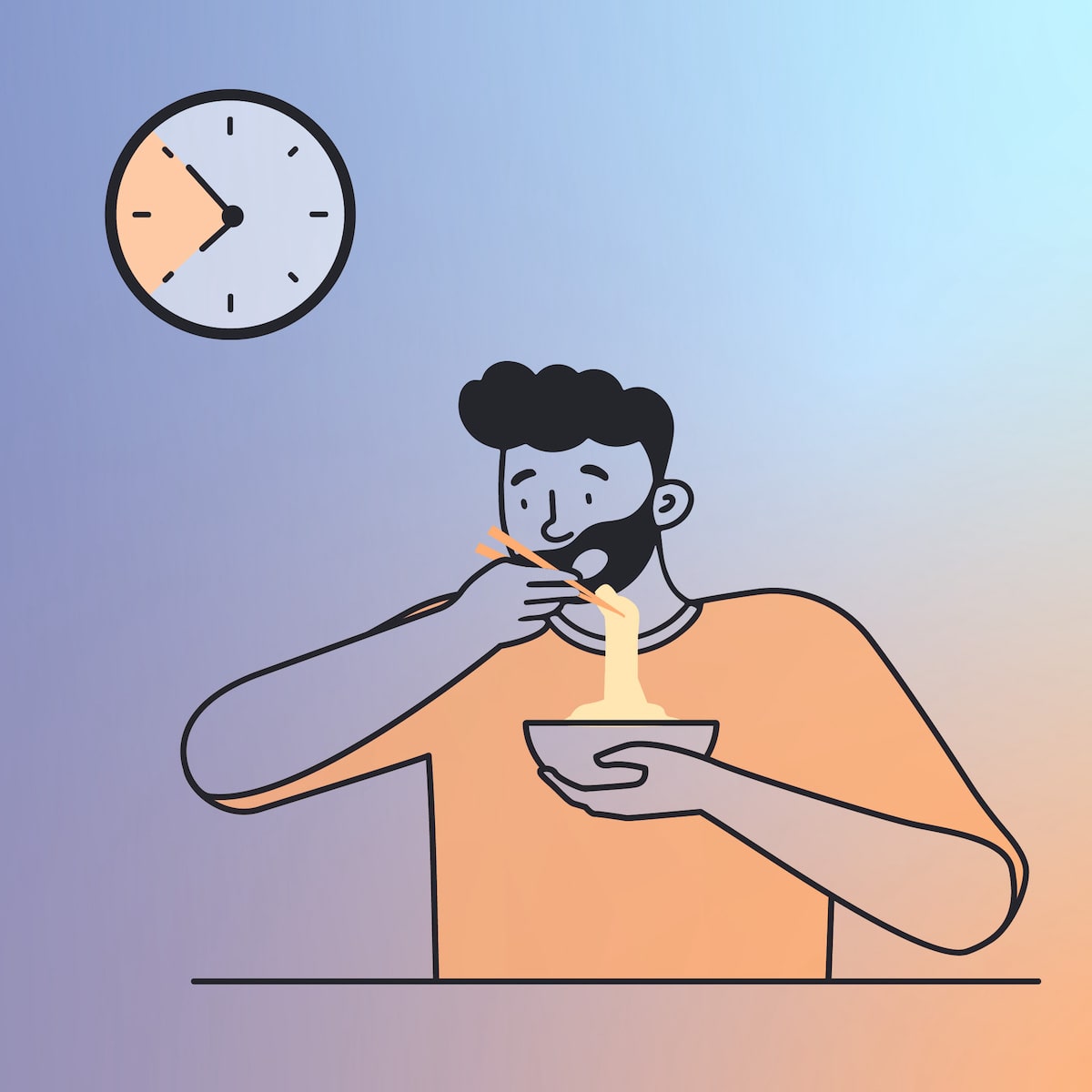
How Long Before Bed Should You Stop Eating?
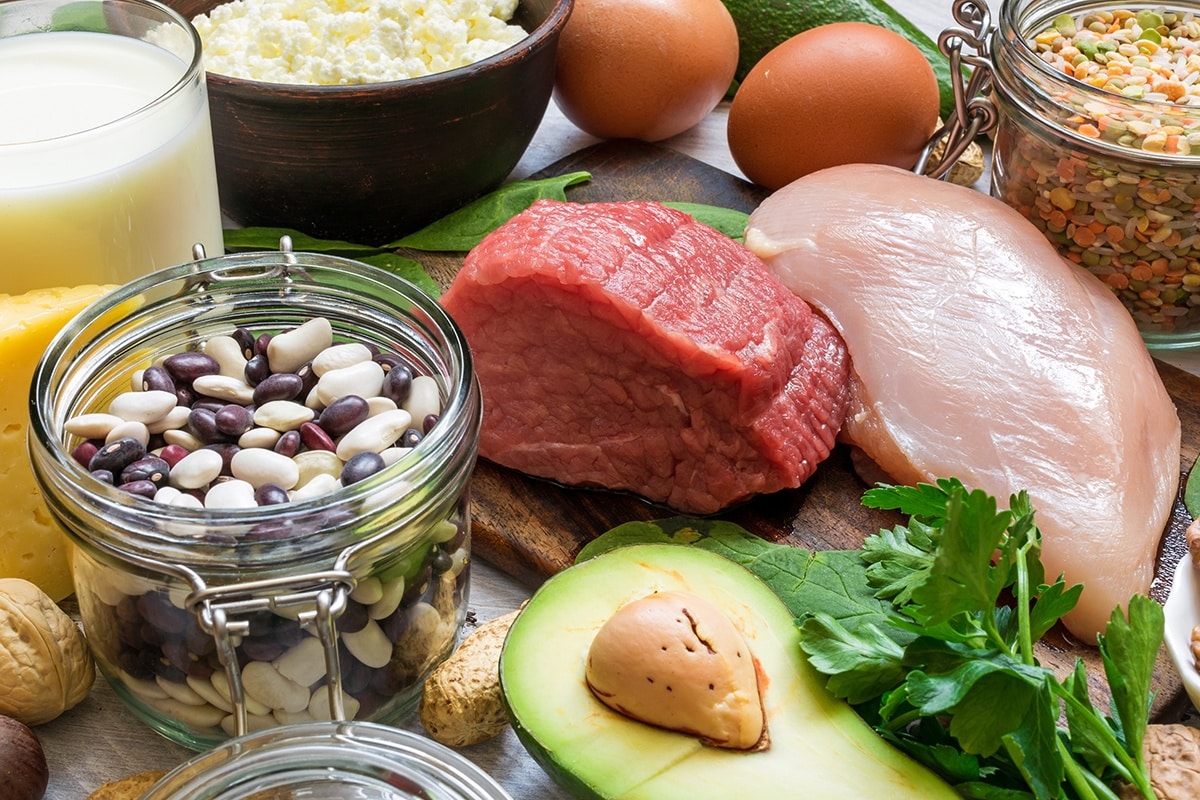
The Relationship Between Popular Diets and Sleep
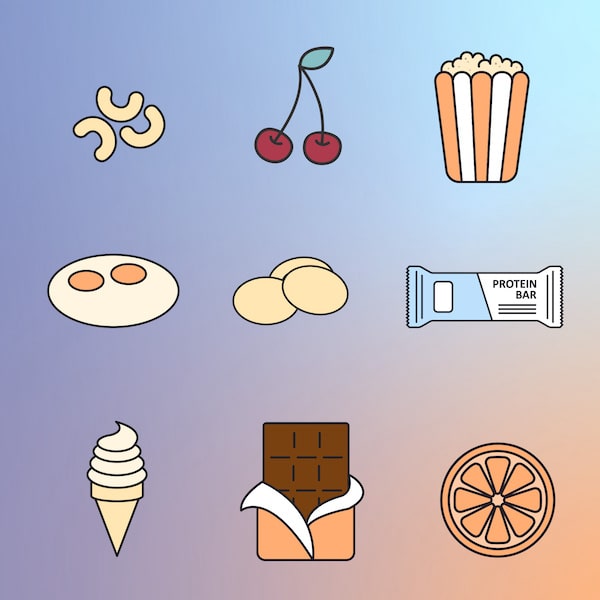
12 Healthy Foods to Eat When You Want a Midnight Snack

Does Vitamin D Help You Sleep?
Weight & Sleep
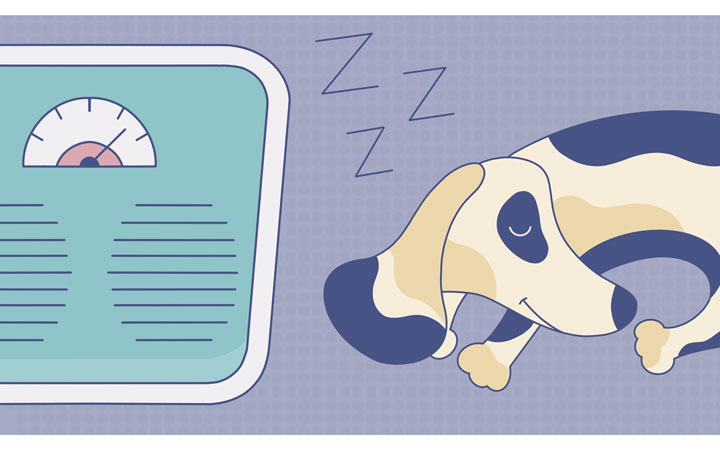 There are two major components to dieting: Weight loss and exercise. Experts say that the key to successful weight loss in maintaining a calorie deficit, meaning more calories are burned than are consumed. Another, less obvious factor in successful weight loss? Sleep.
There are two major components to dieting: Weight loss and exercise. Experts say that the key to successful weight loss in maintaining a calorie deficit, meaning more calories are burned than are consumed. Another, less obvious factor in successful weight loss? Sleep.
A paper in the peer-reviewed journal Obesity Reviews, published in 2017, examined the connection between stress, poor sleep, enhanced appetite, food cravings, and motivation towards physical activity. They found that stress affected all of these things, and also noted that inadequate sleep is linked to obesity.
“Not only do the adverse effects of stress influence sleep patterns, food intake, weight gain, abdominal obesity and the effects of weight loss interventions but evidence also suggests that improving nutritional status and sleeping patterns may reduce the severity of stress and other mental disorders,” study researchers wrote.
Weight Can Affect Sleep Disorders
Bodyweight plays a role in many facets of health, including sleep disorders. The American Sleep Apnea Association stresses that being overweight or obese is not the only reason why someone might develop sleep apnea, but notes that “being overweight is still a high risk factor for the development of obstructive sleep apnea.”
The American Academy of Sleep Medicine (AASM) defines obstructive sleep apnea as “a sleep-related breathing disorder that involves a decrease or complete halt in airflow despite an ongoing effort to breathe.” This happens when the soft tissue in the back of the throat blocks the upper airway, pausing or halting breathing for 10 seconds or more — up to even one minute or longer.
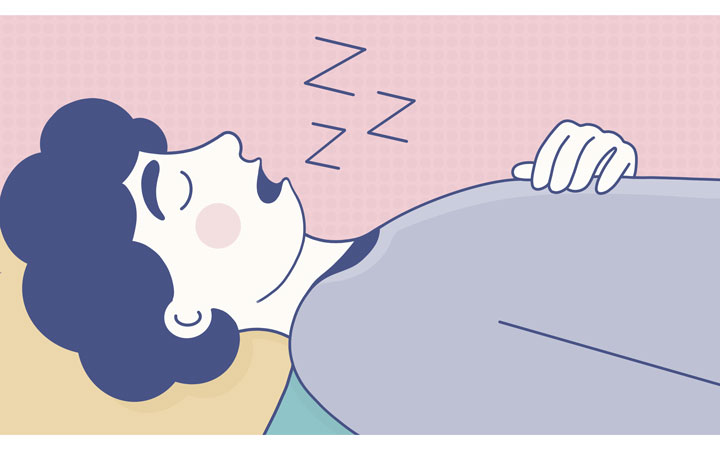 “The brain responds to the lack of oxygen by alerting the body, causing a brief arousal from sleep that restores normal breathing,” the AASM says. This pattern can occur hundreds of times in one night. The result is a fragmented quality of sleep that often produces an excessive level of daytime sleepiness.”
“The brain responds to the lack of oxygen by alerting the body, causing a brief arousal from sleep that restores normal breathing,” the AASM says. This pattern can occur hundreds of times in one night. The result is a fragmented quality of sleep that often produces an excessive level of daytime sleepiness.”
Other risk factors that contribute to obstructive sleep apnea include a narrow airway, chronic nasal congestion, high blood pressure, smoking, family history, diabetes, and a smoking habit. However, the Mayo Clinic says that most people with obstructive sleep apnea are overweight or obese.
“Excess body weight contributes to sleep apnea by causing increased pressure on upper airways, leading to collapse and decreased neuromuscular control from the fatty deposits,” the Obesity Medicine Association says. “These fatty deposits contribute to decreased lung volume and make it more difficult to breathe.”
For milder cases of obstructive sleep apnea, doctors may recommend lifestyle changes like weight loss. Other potential treatments include sleeping with a continuous positive airway pressure (CPAP) mask, wearing a mouthpiece, or undergoing surgery.
“If you’re overweight or obese, even a moderate loss of excess weight may help relieve constriction of your airway,” the Mayo Clinic says. “Losing weight can also improve your health and quality of life, and may reduce your sleepiness during the day.”
Additional Weight Resources

Intermittent Fasting and Sleep
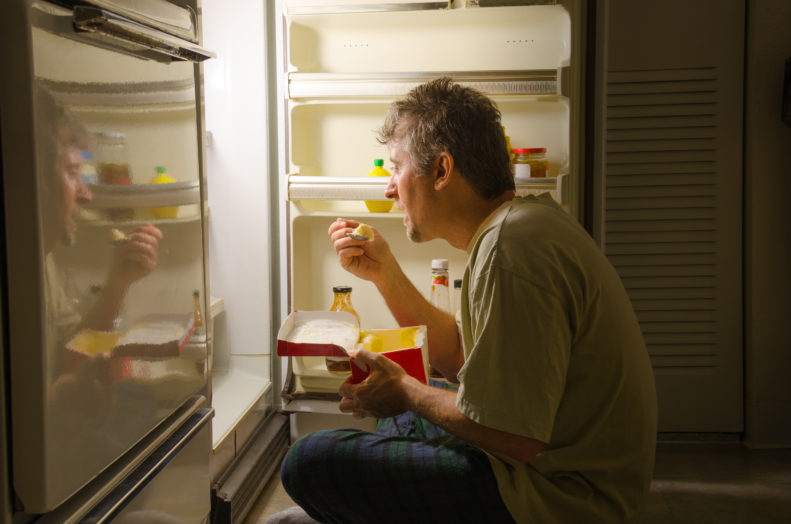
New Study Connects Poor Sleep to Junk Food Cravings

12 Healthy Foods to Eat When You Want a Midnight Snack

The Relationship Between Popular Diets and Sleep
The Bottom Line
The relationship between food and sleep is incredibly complex and varies from person to person. Everyone has an individual tolerance for caffeine and alcohol and digests food at different rates.
This means that foods or mealtimes that affect sleep for one person will have no effect on another.
Following a nutritionally balanced, healthy diet can improve overall health and sleep habits. Consult a doctor for any specific concerns about the intersection between diet and sleep.
Further reading:
- Foods and Sleep – Mayo Clinic
- Improve Sleep by Eating Right – Harvard Health
- The University Of Iowa — Is Your Diet Keeping You Awake?
- Stanford — to Fight Effects of Sleep Deprivation, Reach for Healthy Snacks
- Better Sleep: 3 Simple Diet Tweaks | Johns Hopkins Medicine
- Sleep Deprivation and Obesity | The Nutrition Source
Featured image: G-Stock Studio/Shutterstock

